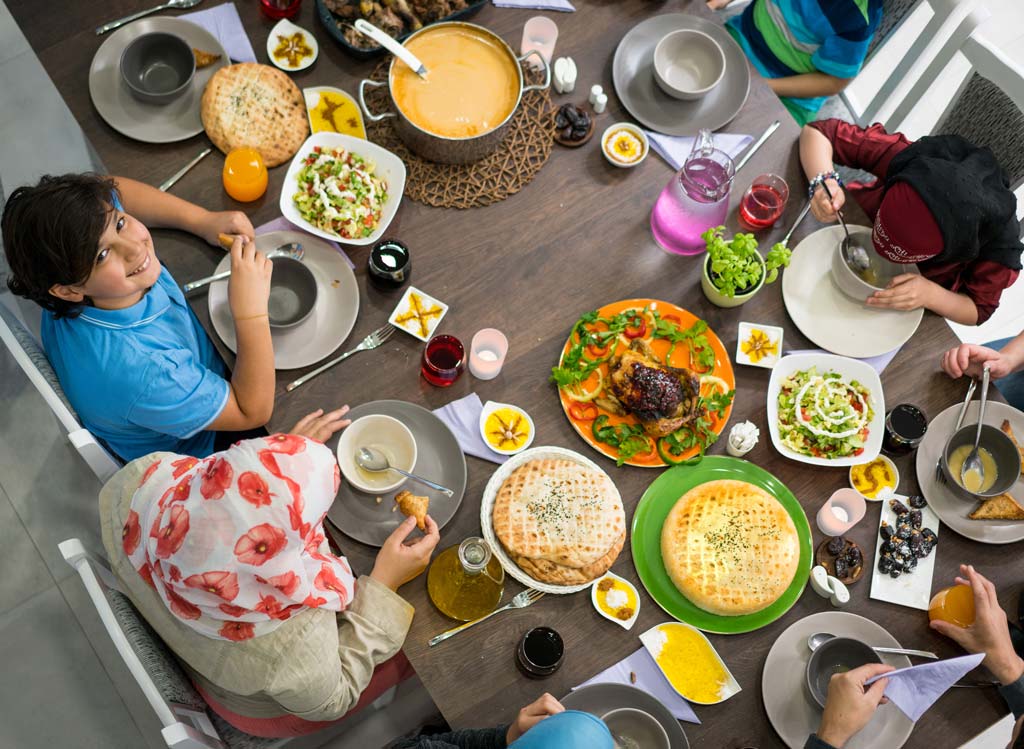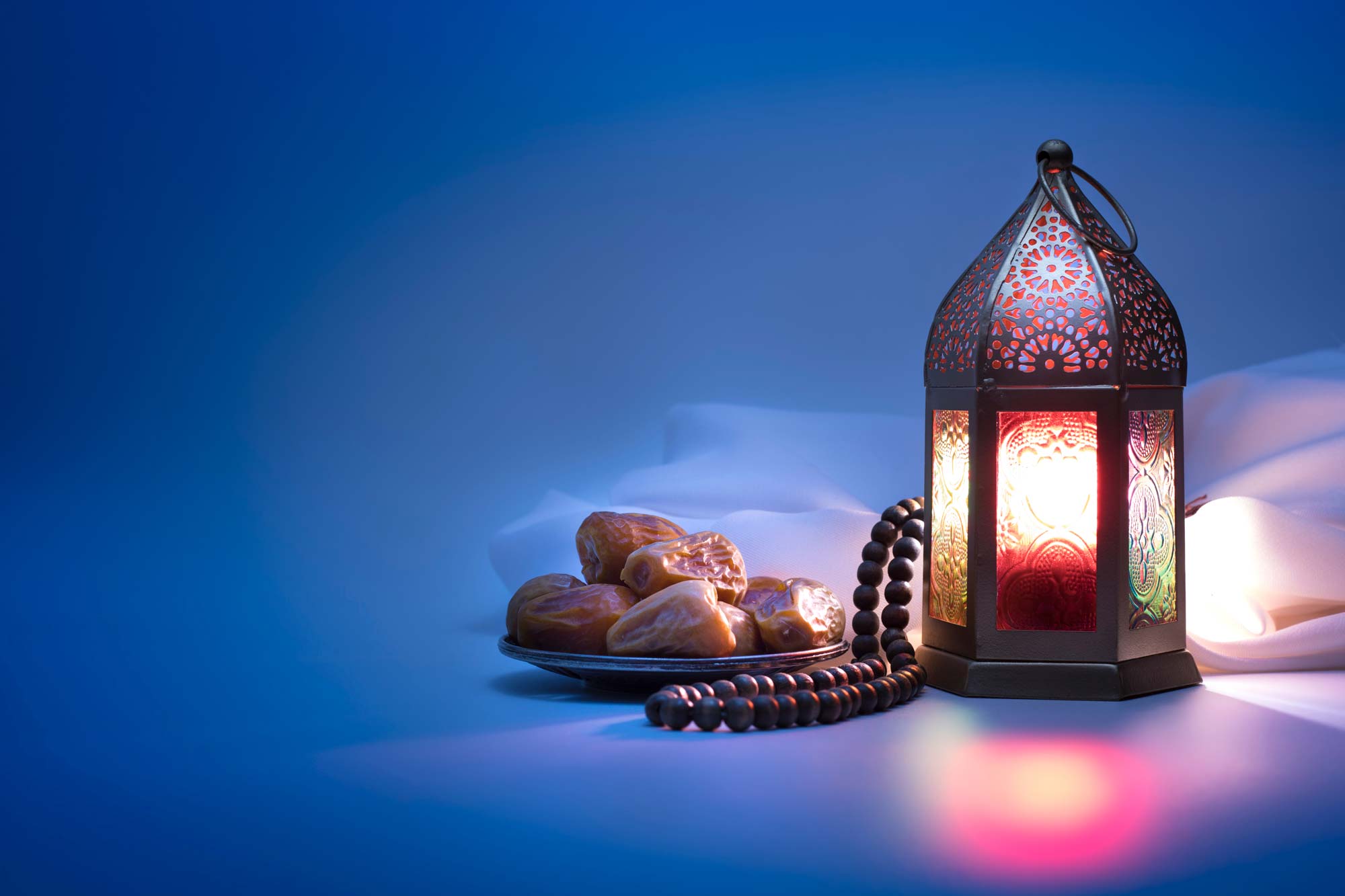When my dear Christian father was still alive, he loved the month of Ramadan. At first we wondered if it was just a coincidence that his visits always seemed to coincide with our holiest month, but then Dad confirmed that his travel plans were deliberate.
He explained that he enjoyed being with us during Ramadan because it was clearly a happy and blessed time for our family and our Muslim community. And most of all, Dad loved the iftars.
Now, Dad didn’t actually fast with us. He was a diabetic, anyway, and needed to eat frequent, small meals throughout the day.
But he always saved room in his stomach for that special meal at sunset, whether it was a few humble dishes served at our own kitchen table, or even better, an elaborate potluck composed of various international dishes cooked by our diverse community.
They say the way to a man’s heart is through his stomach. For Dad, part of learning to appreciate Islam and love Muslims was definitely via samosas, couscous, maqlooba, and biryani!
Interfaith clashes
Like many non-Muslim parents whose children convert to Islam, Dad had a hard time, initially, wrapping his head around my decision. On one hand, the news, TV shows, radio talk shows, and movies frequently portrayed Islam as a backward, violent, and oppressive religion.
On the other hand, Dad could see how I willingly embraced the faith and led a life of contentment and normality within my Islamic lifestyle.
I know it was difficult for him to see his daughter dressing differently and celebrating new holidays, but Alhamdullilah, our relationship stayed close and mutually supportive.
He enjoyed a wonderful relationship with my husband and our children, too, and he cared about me enough to be willing to try to be open-minded about my new lifestyle, even if he didn’t agree with all of it. His acceptance wasn’t instantaneous, though; it took time and experience. And Ramadan.

Winning over with food
One particular Ramadan iftar made a huge impression on my Dad. My husband had invited him to join several local brothers at an all-men’s iftar. There would be good food, my husband promised, and lively conversation. What more could my Dad possibly wish for? He agreed enthusiastically.
On the night of the event, Dad’s taste buds and love of good companionship were not disappointed.
He was able to sample delicious dishes from all over the world and to laugh along with the brothers who were all telling good-natured jokes and funny stories throughout the meal. When it came time to stand up and leave, though, Dad had a problem.
A former strapping six-foot tall football player, Dad was much older and weaker in his old age, and he had trouble getting up from the low-to-the-ground cushion he’d been sitting on.
No problem! The brother to his right, whom he’d never met before, gently helped lift him to his feet. He brushed off my Dad’s thanks. “It’s my duty!” the younger man exclaimed cheerfully and then made a joke to lessen my Dad’s embarrassment.
Then another problem presented itself — Dad had removed his special diabetic shoes at the door, in deference to his host. But now he had trouble getting them back on his numb feet, and fastening the many straps would be difficult, too.
This time, two brothers rushed to the rescue, one of them steadying my father as he stood, and the other tenderly sliding Dad’s feet into the shoes and neatly strapping them up.
My dad had tears in his eyes, the next day, as he told me about his experience. “They treated me like I was their own father,” he told me, with awe. “They didn’t even know me, but they were as kind as sons. Now I know what Islam really is, no matter what they say in the media.”
The taste of memories remain
My dad died seven years ago. I miss him every day, and especially during Ramadan. He taught me so many things throughout my life: how to throw and catch a baseball, how to drive and parallel park, how to unclog a sink, and how to use various tools, from a power drill to a socket wrench.
But, whether he realized it or not, he also taught me a great deal about giving dawah. If we Muslims truly want to show the beauty of Islam, we simply need to show kindness and friendship in our everyday actions.
No lectures about our faith would have been as instructive to my Dad as the thoughtfulness and gentleness of those brothers who helped him at the iftar. No academic articles would have convinced him of women’s rights in Islam if Dad hadn’t observed my husband treating me with kindness.
Actions speak louder than words. This Ramadan, let us be Muslims of beautiful actions that show the true legacy of our Prophet (peace and blessings be upon him).
Let us shower our non-Muslim relatives, neighbors, co-workers with generosity, selflessness, and compassion because those are the marks of a true Muslim.
Our actions will speak our truth loudly and clearly, no matter what lies are spread about our religion. And last but not least, let us not underestimate the power of delicious food, enthusiastically shared and lovingly prepared.

